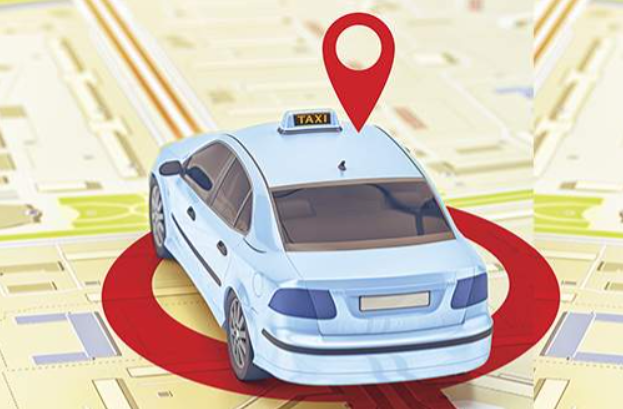
New strategy angers operators but Transport Authority, cops unwavering
Jamaica Observer | Monday, August 23, 2021
UNDERCOVER agents, marked bills, and recording devices to capture the deal. The target: ‘robot’ taxi operators.
Already, this offbeat strategy being used by the Jamaica Constabulary Force (JCF) and the Transport Authority since earlier this year has led to the seizure of more than 350 vehicles. However, the drivers of these robot taxis, who are seemingly being outwitted, are not happy.
Based on information gathered by the Jamaica Observer, Transport Authority officials are boarding robot taxis as regular civilians, capturing a picture or video of the driver receiving marked bills as fare, then disembarking the vehicles. The vehicles’ licence plates are recorded, after which they can be easily tracked for confiscation. Once seized, the vehicles are stored at several of the Transport Authority’s car pounds, two of which are located in Lakes Pen, St Catherine and Lyndhurst Road, St Andrew.
Though the Transport Authority and the JCF are tight-lipped about their operations, head of the Public Safety and Traffic Enforcement Branch Senior Superintendent of Police (SSP) Gary McKenzie told the Observer on Friday that the operation is islandwide.
“What I can say to you is that the police are in support of the Transport Authority. We are totally against vehicles that are operating illegally. The reason we are against it is because the law requires, to carry passengers for reward, that they have a PPV [public passenger vehicle] licence. If that is not the case then the vehicle would have been operating illegally,” SSP McKenzie said, adding that it is an ongoing problem.
“Our aim is to ensure that we have a dent in it [the illegal issue] so that the public passenger vehicle operators are able to earn from what they are doing. I don’t believe that some persons make the effort to get their vehicles up to date, and as such, we will continue the initiative to see how best we can get compliance.”
Several robot taxi operators in the Corporate Area, who spoke to the Observer on condition of anonymity last week, shared how they realised the authorities were employing a new strategy.
“I took him [Transport Authority official] up and let him off at a certain point as he requested, and when I was on my way to get another load of passengers at the taxi stand I saw him with the Transport Authority people looking over at me,” one driver said, noting that he has been operating a robot taxi since last November.
Though his motor vehicle was not seized that day, his colleague did not have the same luck.
Referring to his colleague’s ordeal, as he did not wish to speak, the cabbie said: “I know someone whose car they took, even though he was saying he wasn’t running a taxi. The person [Transport Authority official] said to him, ‘Remember I took your vehicle yesterday and told you I’m coming off at that place? I gave you $500 and you gave me the $100 change. The $500 was marked.’ They even showed the driver a video of himself loading the car.”
His colleague’s car was seized and, having received a warning notice from the Transport Authority, he is still waiting to have the vehicle returned to him.
The illegal cabbie said the new strategy has made his job extremely frustrating, especially since the officials are also clamping down on drivers when they do not have passengers in their vehicles.
“When Transport [Authority] and police a work, the white plate taxi man dem hold a seat [don’t operate], especially if its police on bikes, ’cause Transport Authority cyaan come out and we stop [for them],” he said. “They claim that anywhere they see you, they will take away your vehicle. That isn’t fair. Suppose you catch me while not running taxi? Why not catch the persons in the act? Bwoy, you affi know how to work; this business is for the survival of the fittest.”
Addressing the seizure of vehicles suspected to be robot taxis while no passengers are on board, SSP McKenzie said enforcement of the law is necessary.
“When a vehicle is being intercepted it might not be at the moment they were committing the breach. The breach could have been detected already, and there are several ways in which that can be done. Within the police force and Transport Authority there are operatives who are out on the streets making observations. They may get statements from persons who have travelled on the vehicle and they, too, might have travelled on the vehicle.
“What needs to happen, though, is that the Transport Authority or the police need to outline to the persons whom they are taking the vehicles from the facts or the reason why the vehicle is being seized,” he told the Observer.
The SSP said, too, that, while he understands financial hardships have heightened amid the novel coronavirus pandemic, “we can’t throw the laws out the door”.
“We have to live within it and persons have to take the steps to conform to the law. So, if you are in the business of transportation, what we expect is that you will get yourself up to date. It is your responsibility to get the proper licence,” he said.
The illegal taxi operators with whom the Observer spoke said they have no objection to applying for the road licence, specifically to operate a route taxi, but officials are unfair to be conducting such an operation amid the pandemic and extreme economic hardship.
According to the Transport Authority’s website, for route taxis there is a licence fee of $15,000, after which a renewal fee of $12,000 is required each year. The website also said that in order to operate a route taxi certain requirements — such as a having a red PPV licence plate, a Transport Authority sticker on the windshield, a globe bearing the word ‘Taxi’ on the top of the vehicle, Transport Authority driver identification card placed in the vehicle, and the term ‘Route Taxi’ written on the doors — must be met.
Another robot taxi operator pointed out, too, that some of his colleagues have borrowed money from banks to purchase vehicles, so that also makes it difficult for them to apply for the road licence.
“Most of them can’t apply for it [road licence] because the car is trusted through a bank, so you won’t get the approval to get a red plate until you finish pay for the vehicle,” he argued.
The driver, who told the Observer that he has been operating a white plate taxi for three years and has had his vehicle seized twice, costing him more than $60,000 to get it back, said he is trying to avoid a third strike.
“When they took the vehicle they told me I have to apply for the route. They said three strikes and I’m out, so the third time it goes to the pound I won’t get it back,” he explained.
He said, too, that operating a robot taxi is not the only stressful thing about the job.
“It rough a daytime. You have to be running from Transport Authority and police just fi make a dollar. Gas price raise every minute, everything going up, and things slow out here. Weh yuh a go get money fi insure car when yuh put red plate on it? That’s the other issue,” the driver said.
Another driver, who has been operating a robot taxi for four years, shared a similar view.
“[When] driving a white plate taxi the only thing that is needed is a gun, for most of us, because police [already] treat us like we’re criminals. We have to be doing hide and seek to save our vehicles. It is very hard for us to get a red plate, so we get frustrated. We are under a lot of stress already with not making enough money because of the pandemic, and they are making it worse,” he argued.
Meanwhile, Transport Authority’s Corporate Communications Manager Petra-Kene Williams, insisting that “the authority doesn’t divulge the details of its operational or investigative strategies”, told the Observer that the authority has a major role to ensure compliance of motorists.
“It is the duty of the Transport Authority to monitor and regulate the provision of public passenger transport to ensure safety and good order,” she said.
